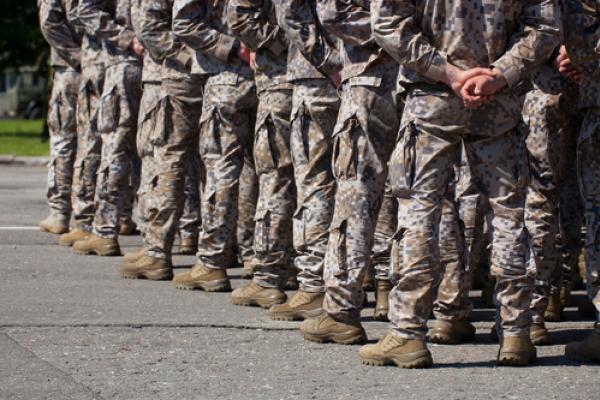In his remarks at the National Defense University two weeks ago, President Obama stopped just one sentence short of declaring an end to the so-called “war on terror.” This is and always was a misnomer. It is a category error. A “war on terror” cannot be fought with armies and weapons of warfare. Terror is a response. Terrorism is a tactic. A terrorist is a criminal who ought to be apprehended, tried, and if convicted punished through the criminal justice system.
The Obama administration has been careful about using this term, speaking more about a war against al-Qaeda than an overall war on terror that is nothing but a declaration of perpetual war. President Obama said: “Our systemic effort to dismantle terrorist organizations must continue. But this war, like all wars, must end. That’s what history advises. That’s what our democracy demands.”
He did not go so far as to declare the war on terror over.
This nation has fought wars in Afghanistan and in Iraq in the name of this mistaken thinking. Drone strikes that kill civilians are a tactic in this war. People have been detained for years without trial at Guantanamo Bay in Cuba, and civil liberties in the United States have been violated. These tactics cannot defeat the ideas behind the violence aimed at the United States. An idea cannot be detained or tortured or killed by a drone strike. An idea can only be defeated by truth and charity.
Many are familiar with the term “just war” — but I say and say again that President Obama is a “just peace” president. Pundits who claim there is no coherence or consistency in his foreign policy demonstrate their ignorance of just peace principles and practices. In my interpretation of just peace theory, it is a middle way between pacifism and just war thinking. There is an intersection between just peace and pacifism and another between just peace and just war. President Obama used just war criteria to defend drone strikes as a tactic in the war against “al-Qaeda, the Taliban, and their associated forces.” He said it is proportional, the last resort, and in self-defense. At the same time, no such war can ever meet the just war criterion of the protection of non-combatants and of innocents. This is why when all is said and done, in our times, there is no such thing as a just war.
Just peace theory seeks to overcome evil with good, with truth, with respect and security. It seeks to establish democracy, a strong civil society, sustainable economic development, and international cooperation. It seeks to meet the basic needs of people.
President Obama spoke of the importance of foreign aid. He stated, “Foreign assistance cannot be viewed as charity. It is fundamental to our national security. And it’s fundamental to any sensible long-term strategy to battle extremism.”
I disagree with President Obama on this point. We ought to think about foreign aid as charity, because charity is a virtue. It is love in action. The English word “charity” derives from the Latin word caritas which means love and friendship. Biblical wisdom teaches us to overcome evil with good. Charity is where just peace meets pacifism. It is a way to make a positive peace where enemies become friends. It is the only way to make a violent idea that leads to violent acts incoherent and irrelevant.
Love expressed as charity is how we win. It is how we defeat our own terrors. It is how we show the tactic of terrorism to be the murderous crime that it is. It is how we make those who would be criminals think twice before hurting a friend.
Dr. Valerie Elverton Dixon is an independent scholar who publishes lectures and essays at JustPeaceTheory.com. Her book Just Peace Theory Book One: Spiritual Morality, Radical Love, and the Public Conversation is now available. She received her Ph.D. in religion and society from Temple University and taught Christian ethics at United Theological Seminary and Andover Newton Theological School.
Got something to say about what you're reading? We value your feedback!
